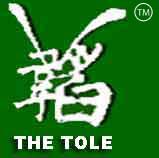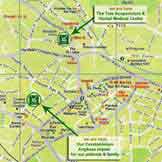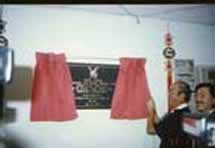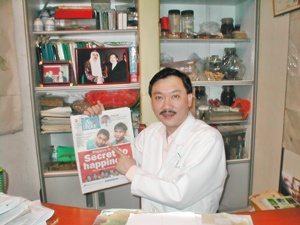|
|
|||||||||||||||||||||||
|
|||||||||||||||||||||||
|
|||||||||||||||||||||||
| Rediscovering Balance | |||||||||||||||||||||||
Life is a delicate dance of equilibrium, a symphony of energies that flow through our bodies, influencing our well-being in profound ways. For those who have undergone certain life-altering experiences, such as the removal of a part of themselves, finding that balance can be a challenging journey. TheTole Acupuncture offers a unique and holistic approach to supporting individuals who have undergone transformative procedures, helping them reconnect with their inner harmony. Embracing Change: Life often takes unexpected turns, and for some, these twists lead to a process of change that involves bidding farewell to a part of oneself. TheTole Acupuncture recognizes the emotional and physical toll this can take on an individual, and their approach revolves around embracing this change with open arms. Through a series of specialized techniques, the focus is on rediscovering a sense of wholeness and acceptance. Energetic Flow: Central to TheTole Acupuncture philosophy is the concept of energetic flow within the body. Picture the body as a network of rivers, each carrying a unique essence. Post-surgery, these energetic currents might experience disruptions. TheTole practitioners work to gently guide and redirect these flows, promoting a renewed sense of vitality and balance. Tailored Sessions: No two individuals are the same, and TheTole Acupuncture understands the importance of personalized care. Sessions are tailored to meet the unique needs of each person, creating a supportive environment that encourages healing on multiple levels. The practitioners utilize gentle techniques, such as subtle pressure and targeted needle placement, to stimulate the body's innate ability to find equilibrium. Nurturing the Spirit: Beyond the physical aspects, TheTole Acupuncture recognizes the importance of nurturing the spirit. Emotional well-being is an integral part of the healing journey, and the sessions aim to create a space for relaxation, reflection, and rejuvenation. Whether through guided meditation or soothing techniques, the focus is on fostering a positive state of mind. In the tapestry of life, unexpected threads may lead us to unforeseen destinations. TheTole Acupuncture offers a path of rediscovery, helping individuals weave these threads into a new, harmonious pattern. Through personalized sessions, a focus on energetic flow, and the nurturing of the spirit, TheTole Acupuncture provides a holistic approach to post-surgery well-being, guiding individuals towards a renewed sense of balance and wholeness. |
|||||||||||||||||||||||
|
|||||||||||||||||||||||
|
||||||||||||||||||||||||||||||||||||||||||||||||||||||||||||||||||||||||||||||||||||||||||||||||||||||||||||||||||||

















